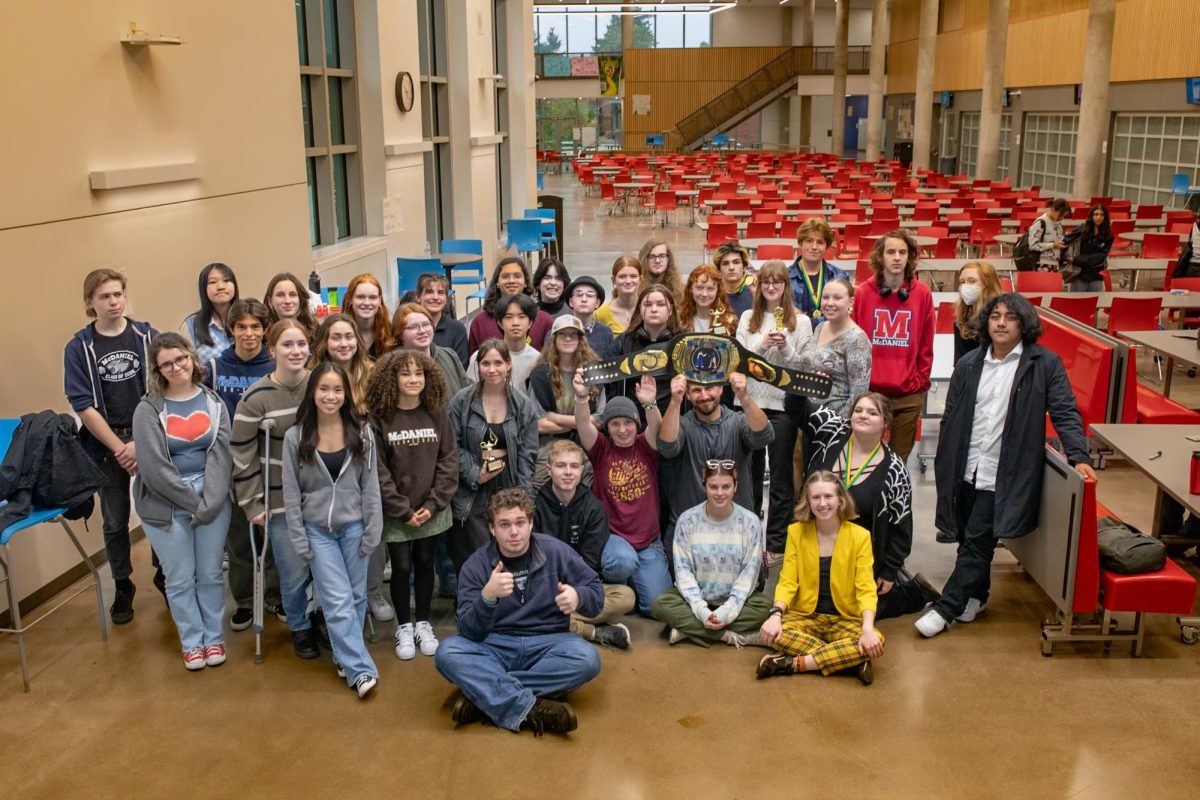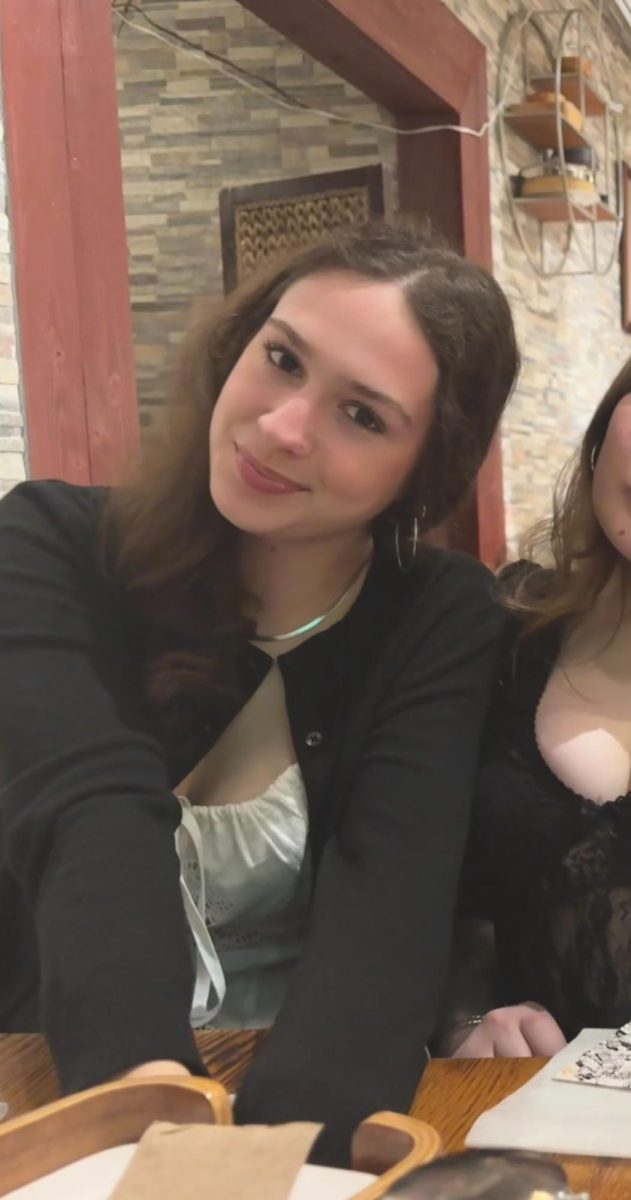Since its reestablishment in 2019, the speech and debate program has been working to prove its status as a powerful force in the Portland Urban Debate League and among PIL high schools. The program has grown from 35 to more than 100 students over the past five years and continues to expand in both size and prowess.
Senior Meredith Gifford, a captain of the speech and debate team, said the team has “gone from pretty small, pretty new, pretty fresh to now, it’s pretty established.”
Gifford explained that this year hasn’t been the most successful for varsity compared to past years, but that the larger novice and JV teams have been excelling at tournaments.
“It’s the sort of situation where we don’t have as many super experienced debaters, which is why varsity hasn’t been going so well because it’s really just me and a couple others,” Gifford said. “On the JV level, there’s so many students that are really passionate, and so I think that next year, it will be even better because the students will age up and have the experience to start competing at varsity.”
There have been quite a few new members of the speech and debate team who have found success this year.
“Our first year students have never done so well, competed so effectively, or won the victories that they have this year. Avery Mullins and Stella Carnes, both freshman, knocked one of Cleveland’s best senior teams out of districts on Friday, so there you go,” speech and debate coach Derek Heath said.
Another of the new members of the speech and debate team is junior Florence Knape.
“Overall our team has been doing really well. I feel like this year was definitely supposed to be a rebuilding year for us. We got a bunch of new people who have done really well in the JV section, and we’ve really expanded our events,” Knape said.
Knape explained that in previous years, the team mostly participated in policy debate and a few speech events, but this year, people have been competing in more things, such as Lincoln Douglas and Student Congress.
In the beginning of the year, Knape competed in policy debate, which she enjoyed a lot.
“I did really well. I went undefeated,” Knape said.
Knape was promoted to the JV level, which was more challenging for her. She recalled that Heath suggested she try parliamentary debate for a change of pace.
In policy debate, competitors prepare their responses and arguments far in advance, whereas in parliamentary debate, the topic is chosen the day of. Competitors are assigned either the affirmative or negative and have 15 minutes to collect and construct their ideas before the debate begins.
“So I did [parliamentary debate] last tournament. It was really fun. It was really hard,” Knape said.
She explained that she joined the speech and debate team because her friends encouraged her to do so and because she had Heath as her AP US History teacher.
“I had Mr. Heath as a teacher for APUSH, and I had a bunch of friends in the [speech and debate] class. And I had a bunch of people be like, oh my god, Florence, you’d be so good. You should totally join,” Knape said.
Heath has been the speech and debate coach since the program’s reintroduction. He said that the speech and debate program is alluring to all sorts of students, from aspiring advocates, to history buffs, to anyone who just likes to argue.
According to Heath, the first year “was a little depressing because…we were gearing up to just murder the state tournament,” when the COVID lockdown hit, shutting down school.
Since then, the team has been practicing and attending competitions consistently.
“We’ve never missed a year, never missed a tournament, nothing,” Heath said.
According to Heath, the speech and debate team has a smaller resource base than other Portland high schools, particularly in terms of money. Among other expenses, debate teams are expected to provide judges for the tournaments they participate in, as well as fund transportation, or in some cases, lodging.
“Some schools that don’t need to be named just get a check from their PTA, an outside partner, or parents that can fund an entire [year’s] worth of competitions. We have to work a little harder to find funding, but again luckily our students are now running some fantastic fundraisers,” Heath said. “The administration and Mr. Fields business program are also highly supportive, and without their help, there is no way we could pay for the program at this point and size.”
Gifford believes that the speech and debate team is setting itself apart as a competitive program despite having fewer resources readily available to them.
“I think we’re starting to distinguish ourselves beyond just the Portland Urban Debate League, but in the wider city and state as an actual force, because for a long time, the richer schools have dominated debate because they have the resources, but I think McDaniel is starting to prove that you don’t have to be wealthy to be good at debate,” Gifford said.
Heath agrees that the team is stacking up well against the other teams in the district.
“So we’re trying to—we are succeeding, actually—in competing against, say, Lincoln and Cleveland, when their teams maybe have a little bit more of a resource base to draw from,” Heath said.
After the district competition hosted here on April 4, Meredith Gifford, Hadley Emerson, Caden Berg and Matilda Foster qualified to represent the team at the state tournament on April 18-20.




